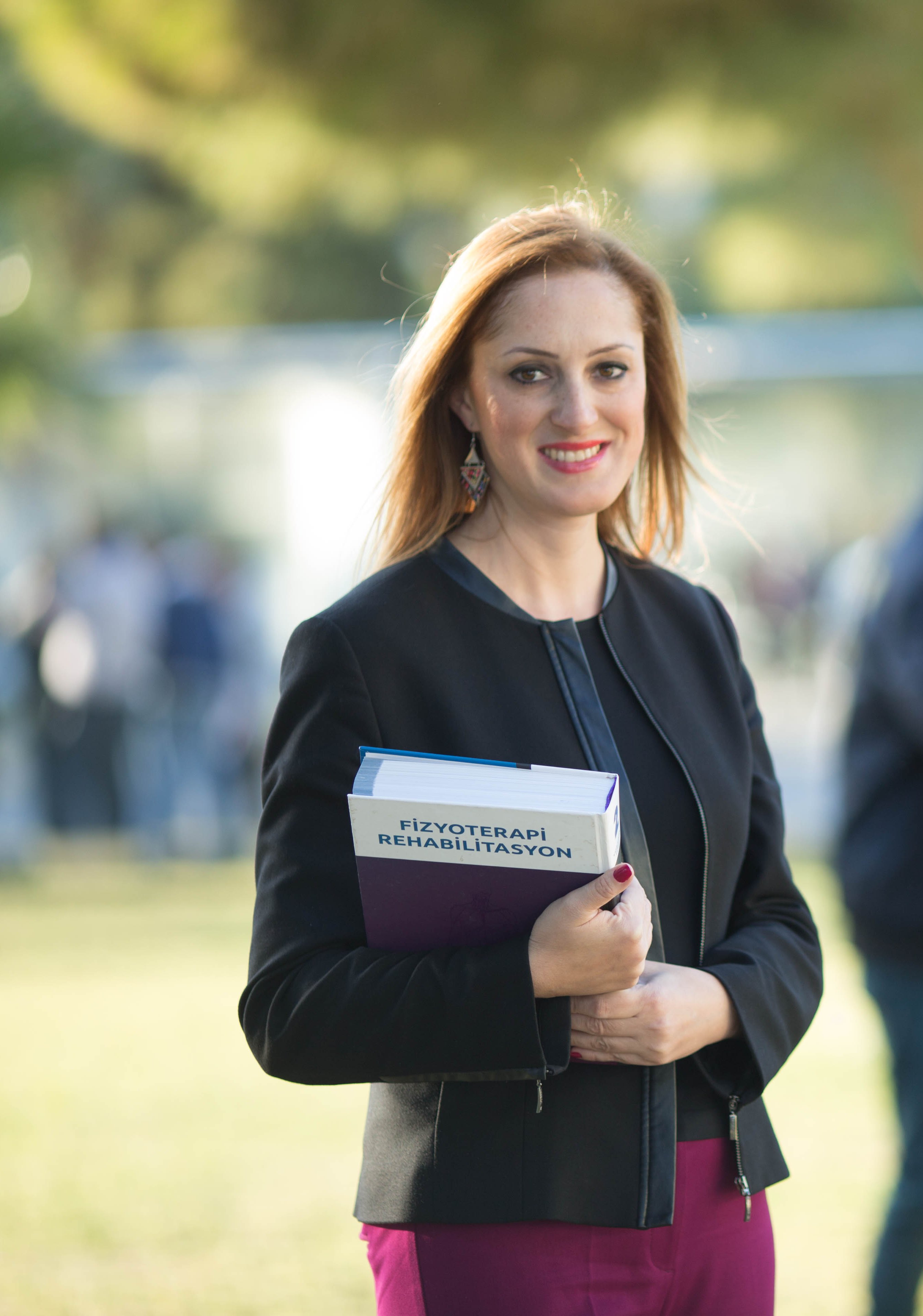The Member of the Faculty Ergin provided information on “The Importance of Physiotherapy in Palliative Care Children”.

The Head of Physiotherapy and Rehabilitation Department of the European University of Lefke (EUL)- Assist. Prof. Dr. Gülbin Ergin explained “The Importance of Physiotherapy in Palliative Care Children”.
Ergin said that the term “child” includes a large group of children whose age, developmental level, physical size, relevance and communication methods differ from infancy to the end of the adolescence period. Ergin also emphasized that many children who have very low chances of survival because of prematureness, birth complications and congenital anomalies, together with important scientific and medical developments in the treatment of children today, now live for many years. Ergin stressed that some children continued to their habitual lives, but a large majority faced chronic, life-threatening or threatening situations.
Ergin: Palliative care focuses on alleviating or eliminating pain, fatigue, and loss of appetite, depression, loneliness and isolation
Ergin said that, thanks to palliative care in children, child and the family are helped live a meaningful life, maximizes quality of life and helps transition to initiatives aimed at symptom control from interventions during acute crises where broader definition treatment is impossible and emotional support can be provided to the child and the family by creating a team that can cope with the difficulties experienced in the development of children and their families. Stating that the palliative care team members include members of medicine, physiotherapy and rehabilitation, nursing, social services, nutrition, pharmacy and other health disciplines, Ergin pointed out that leadership, cooperation, coordination and communication are essential for effective organization of these disciplines and services.
Ergin said that palliative care focuses on alleviating or eliminating the symptoms such as pain, fatigue, nausea-vomiting, loss of appetite, depression, confusion, loneliness and isolation that cause difficulties in children as well as in adults. Ergin mentions that the developmental period in which the child is in also affects the perception of illness and death and that palliative care in children is different from palliative care in adults. Ergin emphasizes that the needs of each child changed according to their age and cognitive development, for example the needs of a pre-school child are different from each other, so that the communication of the feelings, wishes and thoughts of health professionals with less verbal, more symbolic ways must be trained.
Ergin: One of the most important issues that should be addressed in palliative care in childhood is physical activity
“One of the most important problems in the field of palliative care for children is that health professionals who are dealing with children, have a limited knowledge and experience on the issues such as pain management and death, thus this affects the communication between the health professionals and the patient and the family negatively” Ergin said.
One of the most important issues that is required to be addressed in childhood palliative care is the physical activity. This is so as the physical activity contributes to energy balance such as diet with the fact that regular participation in moderate physical activity can be an important factor in preventing obesity, osteoporosis, diabetes, hypertension and some cancers. Ergin also stressed that not only the physical activity but also the musculoskeletal and cardiovascular systems were adversely affected by the ill effects of the disease and the treatment. In this case, Ergin stated that the functional capacities and physical fitness of the children were significantly reduced compared to the pre-disease. Therefore, she stated that the physiotherapist made the necessary evaluations during the rehabilitation period and created treatment strategies to protect the child’s physical fitness for as long as possible.
As a result, Ergin said, health professionals working on child patients need to know the basic principles of palliative care, have detailed knowledge and experience about child development, and have the ability to evaluate and manage the complex needs of all the individuals on the family. It is necessary to provide the necessary support to the family in the time period from diagnosis to the age of the diagnosis, and to improve the quality of life of the individuals.
